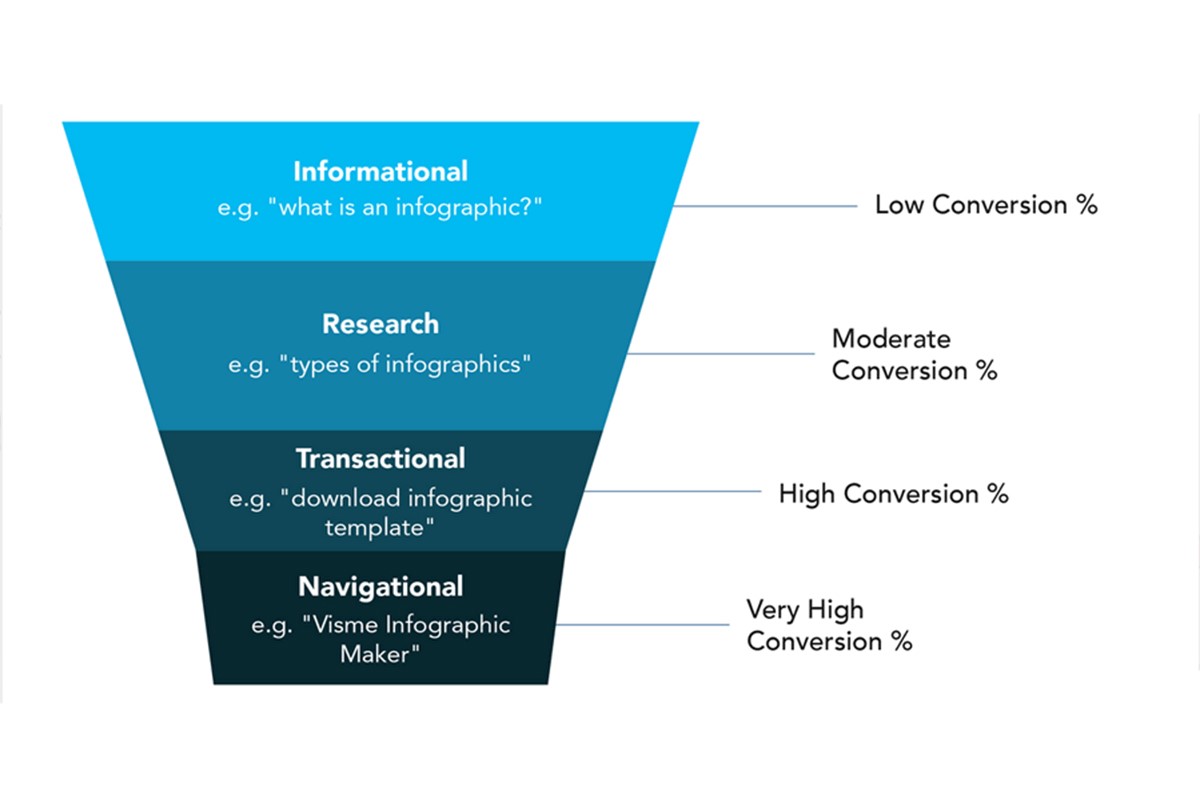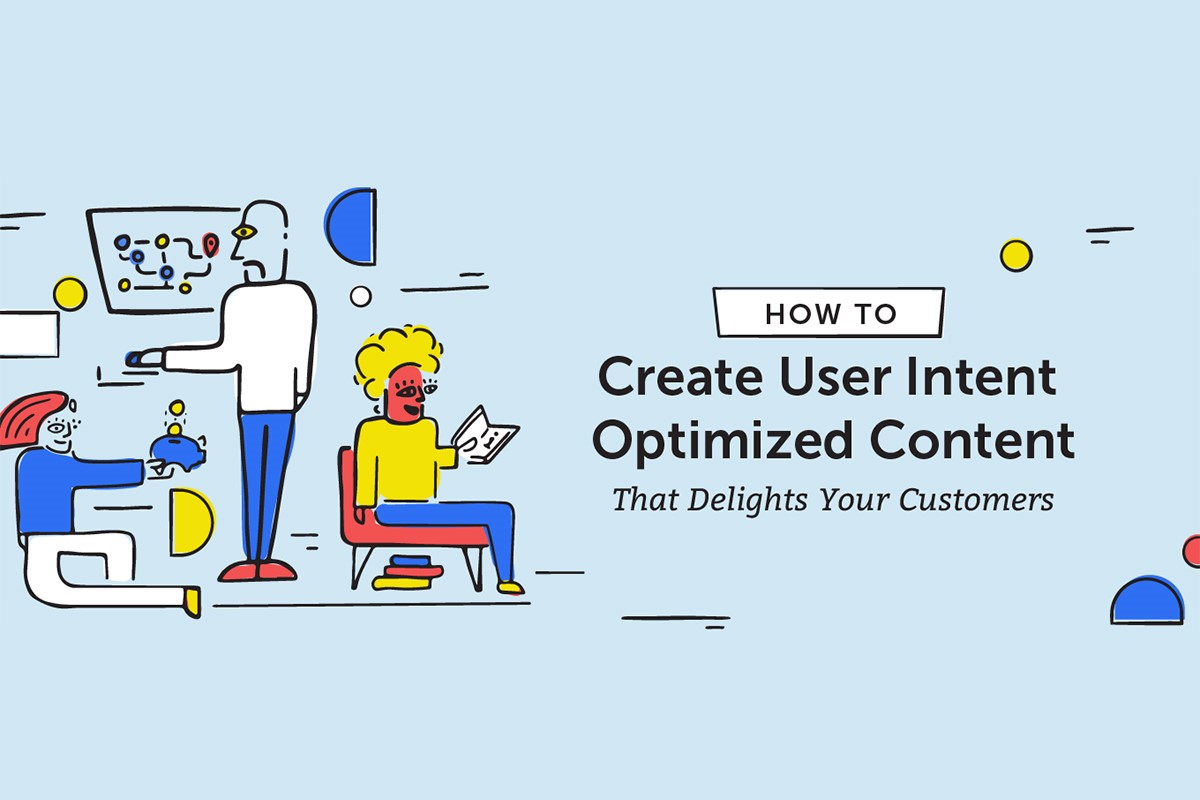Is User Intent Important in SEO? Explained!
Writing for improved search rankings is all about understanding Google’s algorithm and using the right keywords.
Wrong!
You should write for your target audience before you do for Google (that’s what any leading SEO company in Leeds would tell you to do).
Why Focus on Search Intent?
The need to produce content that matches user intent has never been greater than it is now because Google's latest algorithm update favors semantic search tailored to the reader's query.
Search intent explains everything behind the keyword searched.
What does this mean? The days of tailoring content to the major keywords in the title and meta description are gone, and now Google is focusing on delivering content that answers users' questions.
This means fewer backlinks, fewer keywords in the content and more focus on providing a satisfying answer to the question.
We'll discuss how to identify the different types of search intent and we'll take a look at some examples and why it is important for SEO.
But first, let's start with what search intent isn't.
Search Intent Isn't Search Volume
One of the most common mistakes that people make when it comes to search intent is thinking that intent simply searches volume.
They see that someone searched for "best headphones" and they believe that there's a customer ready to be converted who just needs the perfect product, so they write an incredible article about headphones!
Unfortunately, it doesn't work like that.
Just because someone typed "best headphones" doesn't mean they want to buy the best headphones; it simply means that they are looking for them.
And as we will discuss later on, each type of search intent might have its own unique set of queries.
For instance, someone might look for "best headphones" but through your site, they discover that they need noise-cancelling headphones and then you serve them an article on the best noise-cancelling headphones.
With search intent you have to consider more than just the words someone typed into Google, you need to understand their entire journey.
So, make sure that when you're mapping out your keywords, don't just focus on the search volume but also consider intent.
What is Search Intent?
Search intent is the purpose behind each search that people do. It refers to what they are trying to accomplish when they look for information online.
Search intent is also commonly referred to as query, meaning or simply just search.
The important thing is to understand that search intent is based more on the customer's long-term objective than on what they are looking for at that moment.
Search intent is important because search engines are delivering more personalized results to users.
They're taking into consideration not only the user's prior searches but their location and demographics, too.
For instance, if someone is baked in Leeds and searches for the best SEO agencies in Leeds, Google will show the results in Leeds, not in the UK.
But how exactly does Google determine one's search intent? It looks at previous searches, bounce rates, location and click-through rate of results pages.
How to Identify Search Intent?
People might be able to understand the specific search they're performing, but it's often hard for them to identify their intent.
However, you need to know your customers well enough that you can determine their search intent just by looking at what they are typing into Google.
For instance, someone who types in "SEO Company Leeds" probably needs one, but someone who types "best SEO companies in Leeds" probably just wants to check out the different options.
In order to determine what someone's intent is you need to understand the words, they are using. But this isn't always easy because…
People don't know what they want.
Did anyone ever say, "I'm looking for an SEO company right now"?
No. People don't know what they need until they are exposed to it.
This is why marketers should think of search not as a moment where the user knows what they want, but rather just as an opportunity to show the possible options.
Different Kinds of Search Intent
Now that we have a good understanding of what search intent is, let's discuss the different types of search intents and how you can write for each one.
Informational Intent: Looking for information.
Transactional Intent: Looking to make a purchase or accomplish a task. Also called "I-want-to-know" intent.
Navigational Intent: Looking for an already established location. Also called "I-want-to-go" intent.
Experiential Intent: Looking to be entertained or inspired. Also called "I-want-to-do" intent.
Let's discuss each one of these types in more detail…
The image below from Ahrefs simplifies the types of user intent.

1. Informational Intent
This is probably the most common type of search that people do online. With this intent, users are looking for information that will help them solve a problem, answer a question or just satisfy their curiosity.
If you write for informational intent you should be able to answer questions such as:
What is this?
How does it work?
Where can I find more information?
You also need to know the different ways people search when they have this intent in order to help them find what they are looking for faster.
For example, if you have a blog post about how to check Google ranking, you would want to include the following keywords: "how to check your website ranking", "Google ranking guide", "tools to check to rank" etc.…
2. Navigational Intent
People with this intent are looking to use a specific website or web application. The good news for you is that the keywords that they type in are specific to the website or web app.
For example, if your audience knows about you already, they will type in the keyword like ‘iPhone 12’, ‘Levis’, or ‘Charles and Keith’.
Usually, you don’t need to write much content about this intent as users already know what they’re looking for.
3. Experiential Intent
If you write for experiential intent, then your posts should be able to answer the following questions:
Why does this matter? What are the benefits of learning about this topic? Who is this post for?
For example, if you own a digital marketing agency in Leeds, that solves small business problems to gain more social media visibility and rank higher, then you should talk about social media tools or digital marketing tips. Instead of writing a blog post with keywords like “how to learn social media marketing.
You should instead focus on writing for the experiential intent and write something like:
"How to build a social media marketing strategy in 8 steps".
4. Transactional Intent
This is when someone is looking to make a purchase or accomplish a task. This is also called the "I-want-to-do" intent because they are actively looking to accomplish something.
If you write for transactional intent, you need to know what someone has to type in to find what they are looking for online.
For example, if you are a digital marketing agency in Leeds, what keywords do your customers use when they are looking to hire the best SEO agency in Leeds or probably an affordable SEO agency in Leeds?
How much does it cost?
When you are answering these questions, chances are the business may contact you and close the deal!
What's the Difference between Intent and Keywords?
Now that you know what search intents are, let's talk about how they are different from keywords.
Keywords are what people search for specifically to find your content whereas intent is the reason they are searching in the first place.
For example, if someone types in "cheap laptops" you would think that this person wants to buy a cheap laptop, right?
Well…yes and no.
What do I mean by that?
Keywords are often very generic terms that have a wide range of meanings.
If you write for informational intent as we talked about earlier, then you should be able to answer the following questions:
What are good places online to buy a decent laptop that won't break the bank?
Are refurbished laptops a good option?
Are used laptops a better choice?
If you think about it, these questions do not mention the word "cheap" at all.
Using this information will help you create more targeted content that can give your readers exactly what they are looking for, whether it is informational or experiential.
How to Optimize for Search Intent?
Now that you know what search intent is and how it relates to SEO, let's talk about how you can optimize your site for each Search Intent.

1. SERP Analysis
The first step is to analyze SERP results in your niche. Like what type of content is ranking? Is it blog posts, video content, or eCommerce results?
By analyzing your competitors, you can identify what type of content they are creating in order to rank at the top of Google.
You should also monitor the top 10 results for each search intent keyword in your niche. By doing this you can identify what kind of content ranks for each intent.
2. Align Your Content to User-intent
The second step is to align your content to the intent that it is trying to rank for.
If you are looking to rank for "how-to" keywords, then you will need to create educational content that is simple enough for a beginner to understand.
If someone types in "buy laptops near me" then your content should be able to answer that question.
You can also find creative ways to use keywords for each intent in your title, description, etc. This will help you rank higher in the search engines for each intent.
3. Keywords with Multiple Intents
If you have a more general topic, then you should find keywords that have multiple intents.
For example, "SEO" can mean anything from "search engine optimization" to "SEO services" and even "how to make money with SEO".
By finding keywords that have different meanings, you can create content that satisfies each search intent.
You will also be able to rank for multiple keywords with the same article and this will dramatically increase your traffic.
Final Thoughts
The most important thing to remember is that each search intent requires a specific type of content.
By understanding the different types of searches, you need to optimize for, you can create content that is more likely to rank higher in the search results.
By - 15 Oct 2021
Most Viewed Articles
-

By - 16 Mar 2020
9 Key Elements of an Effective Social Media Marketing Strategy -

By - 27 Mar 2020
5 Major Factors that can Impact Your Local SEO in 2020 -

By - 28 Sep 2020
8 Essential SEO Copywriting Rules You Need to Follow -

By - 29 Jan 2021
Digital Media Marketing Agencies: 7 Predictions for 2021 -

By - 01 Oct 2021
6 Rank Tracker Tools to Check Google Rankings
